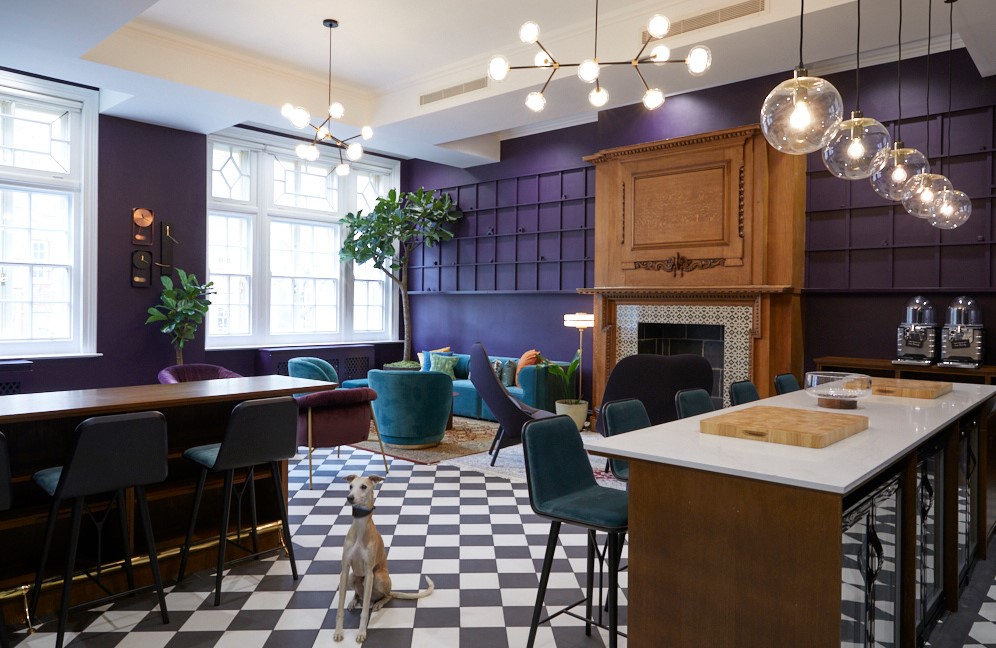Like a lot of things it began with the cleaners. You may be old enough to remember when there were actual cleaners in offices before they all vanished about 20 years ago.
In fact they didn’t disappear, they just got outsourced. That usually meant that nothing much got cleaned especially anymore, but bins were changed at night by unseen hands – the invisible Morlocks in fluorescent bibs, wearing the last person’s name-badge.
Now there are plans for us to outsource our offices altogether. In this case it might make sense: after all, if it’s not your core business, why bother? You’re better off leaving it to the experts.
Of course, the arrival of contracted out offices was well underway before the pandemic (Wework, notwithstanding its mishaps, operates in more than 100 countries, evidence of putative demand and business ambition, if not of profit). But what’s most interesting about the impact of Covid on the workspace is that instead of killing offices off altogether as many of us predicted, it seems that 18 months spent locked down at home has only increased workers’ appetite to go to the office – but only under the right conditions.
You’ll recall that, at first, companies for whom the idea of remote working was ‘an aberration’ (to quote Goldman boss David Solomon), lured their staff back to offices with benefits: so during the pandemic Goldman Sachs offered its staff free breakfasts and lunches to get them into work (perks which were ended last September in London). Among the sweetest back-to-work deals was for some 22,000 PwC staff who received a one-off £1,000 handout in return to agreeing to hybrid working.
Compared to a new offering, that sort of inducement appears to be but the icing at the top of the iceberg.
The newest iteration of this phenomenon takes these trends to their logical, five-star conclusion. In Belgravia, 25 EP (that’s Eccleston Place, SW1, not extended play…) is offering what it calls a ‘unique flexible working space’ that is billed as a ‘unique formula for success in a post-pandemic world!’. What it is, effectively, is a private members’ club themed to work, rather than to fun: which sort of makes it a working man’s club invented by Max Weber: one tilted towards serving the protestant work ethic rather than pints of stout.

Actually it’s rather more plush that that, with richer colour schemes to boot, as befitting its stated aim to be ‘where leading hospitality meets flexible working’. 25 EP is, it proclaims on its website, a ‘home to independent businesses, innovative entrepreneurs and leading talent, managed by a passionate team who are driven by the art of service.’
To anyone who has been on the receiving end of a canteen meal provided by any of the FTSE 100 outsourcing giants, that will sound too good to be true. Most of us would rather endure another lockdown than submit to their lasagne.
Then Belgravia’s answer to Wework has ‘eight beautifully designed private meeting rooms’ boasting rather gorgeous design for client meetings, and naturally all manner of board meetings and so on (up to a capacity of 70) can be accommodated too. The venue promises to lay on events – wine-tastings are mentioned – and other services include a drinks trolley – a must for the returning hybrid workers’ January blues or Wednesdays – plus concierge services. And naturally it’s dog friendly, so the pooch that you bought during lockdown can come to work with you.
With all that – plus the shower facilities and bike storage for anyone crazy enough to cycle in central London – it does sound good enough to travel in for, doesn’t it? And that’s before you get into the self-selecting nature of the demographic that will sign up. It’s got PLU written all over its immaculate parquet…
In part, this is rather a clever acknowledgement that much of what happens at new wave of private members’ clubs anyway – they’re full of people plugged into headphones tapping away at laptops, ignoring their coffees with multiple devices threaded to the walls around them.
So is this the future? Offices run by people who actually like running offices, rather than penny-pinching bureaucrats who despise all human life and would rather see offices replaced by blinking servers slowly melting the tundra in Norway?
Certainly for enlightened employers, this is the future – or at least, a version of it, one that perhaps is closer to their budget. Because one thing is for certain: the age of the office as we knew it is moribund. The David Brent version is history, and deserves to be. To entice workers out of their pyjamas and on to expensive trains, employers have to do more than simply order their staff there and provide a vending machine selling the sort of coffee that would be illegal in Colombia. Offices have to be desirable, attractive locations: otherwise there’s no point. Zoom, Microsoft Teams and Google Docs prove it. Offices have become optional extras: so either you do them well, or don’t do them at all. It’s a bit like in-flight meals. Either make them brilliant and charge through the nose, or just flog people Pot Noodles, like EasyJet does, and let them get on with it.







Comments